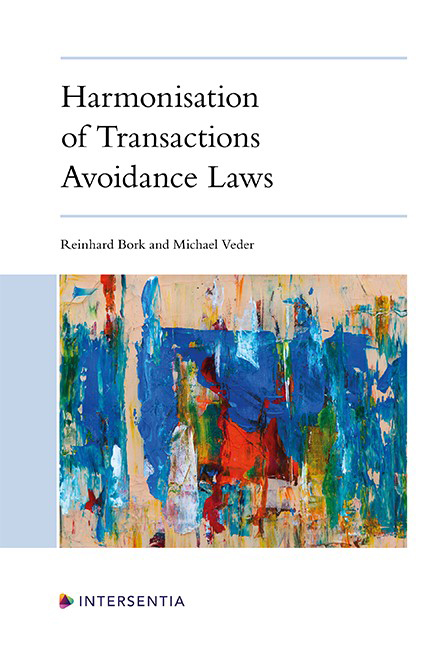Bulgaria
Published online by Cambridge University Press: 26 May 2022
Summary
A. INSOLVENCY LAW OF BULGARIA
Bulgarian transactions avoidance law is incorporated in the commercial law, i.e. the Commerce Act (CA), Part IV “Insolvency”. Currently, the legal framework of insolvency does not provide for the insolvency of natural persons who are not engaged in commercial activity (e.g. consumers). The insolvency legislation is focused solely on the commercial nature of the debtor. Therefore, the rules of the transactions avoidance law apply only to traders (merchants). Natural persons and legal entities (out of the insolvency proceedings) can benefit from the general actio pauliana. Furthermore, the rules of the transactions avoidance law are applicable in both liquidation and rehabilitation proceedings. Both (liquidation and rehabilitation) are regulated as separate stages of insolvency proceedings, following the court decision for the opening of insolvency proceedings. These rules are not applicable in the merchant restructuring proceedings (stabilisation proceedings). However, it is provided that the court may dismiss the application for initiation of stabilisation proceedings if it finds that, within the last three years prior to the filing of the application, the merchant carried out gratuitous transactions or transactions which reduce his or her assets.
B. GENERAL PREREQUISITES
Bulgarian insolvency law recognises the general prerequisites for transactions avoidance elaborated on in the Model Law (transactions perfected prior to the opening of the insolvency proceedings disadvantageous for the general body of creditors), although these prerequisites are not explicitly stated in a rule. In particular, the claims that form the system of the national transactions avoidance law are based on the principles of equal treatment of creditors and protection of the bankruptcy estate from actions and transactions which are detrimental to it or decrease its value.
C. AVOIDANCE GROUNDS
1) GENERAL
The national law provides for a choice of avoidance grounds. The legislator differentiates actions and transactions performed prior to the opening of the insolvency proceedings (preferences, including preferential payments, collateralisation, set-offs, transactions at an undervalue and transactions intentionally disadvantaging creditors, termination or division of marital (community) property, as well as determination of a larger share of that property) and actions and transactions performed on and after the date of the decision for opening the insolvency proceedings, not in compliance with the mandatory rules established for the insolvency proceedings.
- Type
- Chapter
- Information
- Harmonisation of Transactions Avoidance Laws , pp. 301 - 310Publisher: IntersentiaPrint publication year: 2022



